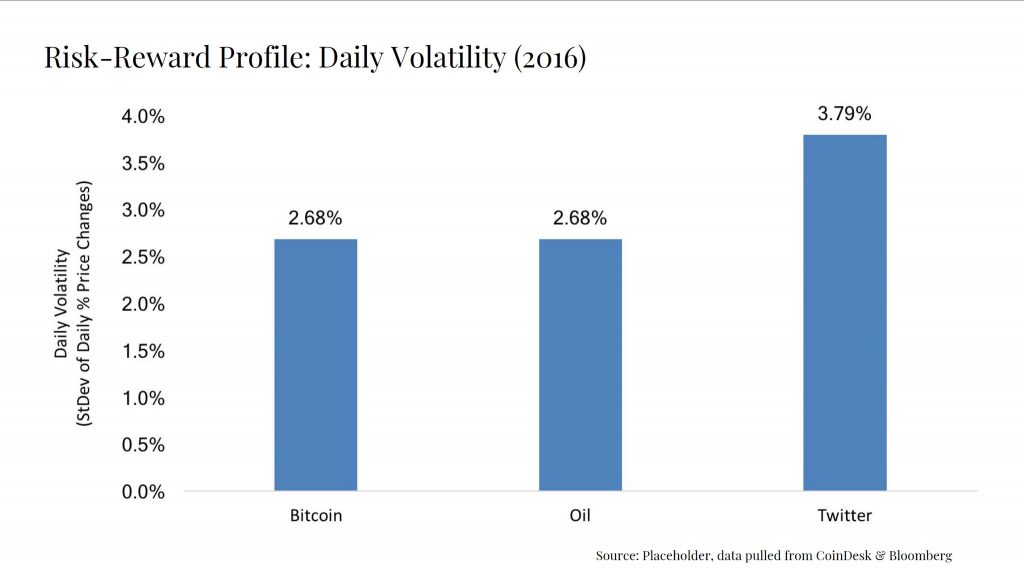
As British Prime Minister Benjamin Disraeli once averred, there are three kinds of lies: lies, damned lies, and statistics. Bitcoin is frequently on the receiving end of them all, whether it’s exaggerated statistics about energy consumption or damned lies conflating it with terrorism. We’ve rounded up 10 of the most pervasive mistruths and endeavored to set the record straight. The next time someone brings one up, send them here.
Also read: Dutch Columnist: Bitcoin Destabilizes the Economy and Undermines Banks
1. Bitcoin Funds Terrorism
We’ll start with the most asinine assertion, although all of the entries in this list are pretty dumb. You know what funds terrorism? Terrorists and terrorist sympathisers. If you want to blame a currency though, try the U.S. dollar which has been used to fund more wars, proxy wars, bombings, hijackings, and insurgencies than any other.
 In 2016, Europol found no evidence that terrorists were using cryptocurrencies to fund their activities. That’s not to say it hasn’t happened and won’t happen. It’s telling however that the only people linking bitcoin with terrorism are governments seeking to crackdown on digital currencies. If a major terrorist attack funded by bitcoin were to occur, we’d never hear the end of it. So far there’s been a lot of noise but nothing to substantiate this claim.
In 2016, Europol found no evidence that terrorists were using cryptocurrencies to fund their activities. That’s not to say it hasn’t happened and won’t happen. It’s telling however that the only people linking bitcoin with terrorism are governments seeking to crackdown on digital currencies. If a major terrorist attack funded by bitcoin were to occur, we’d never hear the end of it. So far there’s been a lot of noise but nothing to substantiate this claim.
Yaya Fanusie of the Center on Sanctions and Illicit Finance had this to say:
[There] are examples of terrorists using virtual currencies, but probably are not indicative of a major push. Right now, virtual currencies are harder to acquire and spend than, say, prepaid cards, or the most anonymous way to fund terrorism – cash. And most terrorists operate in a world where fiat, or government-backed, currency is needed for their expenditures, so a virtual currency where one has to figure out how to cash out without tipping off authorities only complicates a funding scheme.
2. Bitcoin is a Bubble
Where do we even start with this one? No, bitcoin is not a bubble. It’s not going to come crashing down to earth and it’s certainly not going to return to zero. We’ve long passed the point of no return for that to happen. That won’t stop the B-word being trotted out every time bitcoin gains or sheds another $2,000 however. There will be corrections along the way – no asset in history has ever ascended in a straight line – but bitcoin is not about to pop. It wasn’t a bubble at $3,000, it’s not a bubble at $11,000, and it still won’t be next week after a dozen more op-eds have posed this question.

3. Bitcoin is Volatile
For those who don’t relish risk, there are certainly less exciting assets to invest in. Nevertheless, the notion that bitcoin is volatile and needs to be “tamed” is misguided. Hugely respected crypto assets expert Chris Burniske broke this down in a recent slidedeck, showing that bitcoin’s volatility is now lower than Twitter stock. There are still roller-coaster days, but for the most part the digital currency is blissfully calm.

4. Bitcoin is Tulip Mania All Over Again
If you’re not familiar with the much-cited case of tulip mania which swept 17th century Holland, your search engine of choice will furnish you with the backstory. The craze culminated in the price of a particular bulb reaching 4,600 florins. From there, the only way was down.
It turns out that tulips lack any sort of intrinsic value and make a rubbish commodity, just like seashells and pretty stones. Bitcoins, on the other hand, are easy to divide, imperishable, transportable and scarcer than tulips.
5. Bitcoin is Used by Hate Groups

We could launch into a lengthy explanation as to why it’s ridiculous to blame a currency for the actions of a tiny subset of its users, but sometimes the simplest responses are best:

6. Bitcoin is Mostly Used for Illegal Purposes
That claim might have been true in 2013, but today the vast majority of bitcoin transactions are for legitimate purposes. Chris Burniske also provided further evidence of this in his slidedeck which was cited earlier. Still, that won’t stop benighted hacks from the mainstream media trotting out this old chestnut whenever they can, usually accompanied by some variation of this image:

7. Bitcoin is a Ponzi Scheme
A Ponzi or pyramid scheme involves older investors being paid back through the capital from new investors, until eventually the racket becomes unsustainable and the whole thing collapses on itself. The workings of bitcoin are completely transparent and its adoption and growth cannot be controlled by anyone. The price of bitcoin is determined solely by what the market is willing to pay for it, not by a necessity to pay back previous investors. Bitcoin is certainly not a pyramid scheme. Bitconnect, on the other hand…
8. Bitcoin Can Be Hacked
Bitcoin exchanges and cloud-based wallets can theoretically be hacked, just like anything else connected to the internet. The underlying code powering the bitcoin blockchain cannot be hacked however. Bitcoin has been stress-tested more thoroughly than possibly any other piece of code ever written. If you’re worried about having your coins stolen, take our advice and use a wallet which you own the keys to rather than trusting a third party.
9. Bitcoin is a Fad
You know what else was a fad? The internet and cell phones.
10. Bitcoin Uses Exorbitant Amounts of Energy
 We’ve debunked this loads of times, most recently here, and Wired have also explored the matter at length. Yes, bitcoin mining uses a lot of energy – though not nearly as much as reported – and yet every watt is worth it. Rather than delve into lengthy technical explanations, here are a couple of pertinent facts to mull over: bitcoin mining uses a third less energy than is expended on Christmas lights in the U.S. each year. One study estimates bitcoin to use between 0.8 and 4.4 KWh per year. Compare this with the 138KWh per year spent on mining and recycling gold or the 650KWh expended by the global banking system annually and bitcoin looks like a model in efficiency.
We’ve debunked this loads of times, most recently here, and Wired have also explored the matter at length. Yes, bitcoin mining uses a lot of energy – though not nearly as much as reported – and yet every watt is worth it. Rather than delve into lengthy technical explanations, here are a couple of pertinent facts to mull over: bitcoin mining uses a third less energy than is expended on Christmas lights in the U.S. each year. One study estimates bitcoin to use between 0.8 and 4.4 KWh per year. Compare this with the 138KWh per year spent on mining and recycling gold or the 650KWh expended by the global banking system annually and bitcoin looks like a model in efficiency.
To invoke an apposite quote, a lie can travel halfway around the world before the truth can get its boots on. The next time fake news defames your favorite digital currency, drop in this link and set the record straight. Bitcoin is many things but it’s none of the above.
What other bitcoin lies should have made this list? Let us know in the comments section below.
Images courtesy of Shutterstock, and Chris Burniske.
Keep track of the bitcoin exchange rate in real-time.
